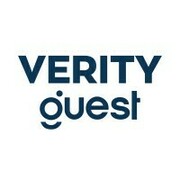Customer Data Platforms (CDP)

Top Rated Products
(1-5 of 5)
All Products
(51-75 of 147)
Explore recently added products
Videos for Customer Data Platforms (CDP)
Customer Data Platforms (CDP) TrustMap
TrustMaps are two-dimensional charts that compare products based on trScore and research frequency by prospective buyers. Products must have 10 or more ratings to appear on this TrustMap.
Learn More About Customer Data Platforms (CDP)
What are Customer Data Platforms?
Customer Data Platforms (CDP) collect and store transactional, demographic, and behavioral data about individuals. It pulls data from multiple first-party sources and aggregates all of this information to build single, unified customer profiles. The primary goal CDPs serve is the need to build an accurate and full picture of customer profiles, so they can be used to better segment and target parts of the customer base.
CDPs give marketers the ability to build targeted campaigns and highly accurate audience segments. However, the CDP is primarily a data store and not a campaign execution tool. It contains technologies to collect data from across customer touchpoints and share information gathered across marketing systems. This improves marketing interactions and customer relationships.
The defining characteristic of a CDP is that it gathers all available first-party customer data from CRMs, marketing automation platforms, websites, email marketing software, ads, and point of sale (POS) systems into a single repository.
Tag management systems are responsible for collecting some of this data, such as cookie and user behavior data. The resulting customer profiles can be enriched with additive data such as lifetime value to provide a unified view of all customers. Consolidated data can then be sent to marketing execution partners in real-time, via data connectors.
CDP vs. CRM
Both customer data platforms and customer relationship management systems are databases that store customer information. However, there are a few key differences between the two. To start, CDPs are designed to build unified customer profiles by collecting disparate pieces of data from multiple first and second-party sources. On the other hand, CRMs are designed to help track the interaction history of a certain contact or account and improve sales forecasting. CRMs also include sales pipeline management capabilities.
Customer data platforms can also collect offline and online customer data. In order to be captured in the user’s CRM, any offline customer interaction data needs to be manually inputted into the system.
CDP vs. DMP
The CDP has some characteristics in common with Data Management Platforms (DMPs). DMPs are also marketing data stores but are narrower in focus. Though they sometimes handle first-party data (i.e. data a firm has collected about its own audience), DMPs are traditionally second and third-party data aggregators and collect behavioral data purchased from publishers. They are concerned with high volume, top-of-the-funnel data. CDPs, on the other hand, are concerned with middle-of-the-funnel and bottom-of-the-funnel data and customer conversion.
Another key distinction between CDPs and DMPs is that data management platforms collect data primarily on anonymous individuals. They collect data inputs such as cookies and IP addresses. In contrast, CDPs collect personally identifiable information (PII), thus much of the data in your CDP will be about known entities.
Customer Data Platform Features
Customer data platforms provide the following set of features:
- Collect and reconcile data from a multitude of data sources
- All customer touchpoints generate usable data
- Cross-device, cross-platform customer journey tracking
- Purchase history, browsing, shopping cart, and other data included
- Create a centralized 360 view of customer profiles
- Accessibility of customer data to marketing systems
- Performs identify resolution based on customer data
- Marketing-defined business rules
- Profile enrichment with product data matching
- Person identifier to unify data across-platforms
- Audience segments, profiling for marketing campaigns
- Marketing technology integrations (e.g. MAP, RTIM, email marketing, etc)
- Predictive customer analytics for real-time interaction management
Customer Data Platform Comparison
Before investing in a CDP, consider the following key factors:
- Use case: Since there is some overlap between CDPs, CRMs, and DMPs, evaluate your use case closely. Are you looking for a platform that will help you collect customer data across channels and touchpoints? Or are you looking for a tool that can help streamline and optimize your sales operations? CDPs can help you achieve the former, while CRM software is better suited to help with the latter. In this sense, CDPs are much more marketing-focused while CRMs are oriented towards sales. Since DMPs collect and store anonymous data, they are better suited for digital advertising use cases.
- Tech stack: CDPs can be incredibly useful for companies with large and complex tech stacks that produce a lot of first-party data. In situations like this, CDPs can help ensure that no valuable customer data is lost or stuck in data silos. However, if your organization does not have a large, multi-tool tech stack—a CDP may be overkill for your business.
- Budget: CDPs can be an expensive purchase, especially for smaller companies that don’t have very large marketing budgets. For many companies, they are well worth the investment. But they may be overkill for others. First, take stock of your company's budget and what level of buy-in you would likely get from executives.
Pricing Information
CDPs are generally available on a monthly or annual subscription. Pricing is tied to the number of monthly tracked users (MTUs) or the number of identifiable profiles. Additionally, some CDP vendors bundle their CDP with other modules for advertising and retargeting, real-time interaction management, or other marketing activities.
CDP installations can range from $10,000 up to $300,000 annually. Most vendors do not publicly disclose pricing information on their website but will provide a quote upon request.
Related Categories
Frequently Asked Questions
What do customer data platforms do?
What are the benefits of using a customer data platform?
CDPs can provide several benefits for an organization:
- They help get rid of data silos by aggregating data from across the organization.
- They build comprehensive customer profiles that can be used for segmentation.
- Unified customer profiles improve campaign targeting and personalization efforts.
- Ultimately, they help go to market (GTM) teams provide better & more relevant customer experiences.
What are the best customer data platforms?
Popular customer data platforms on TrustRadius include:





































